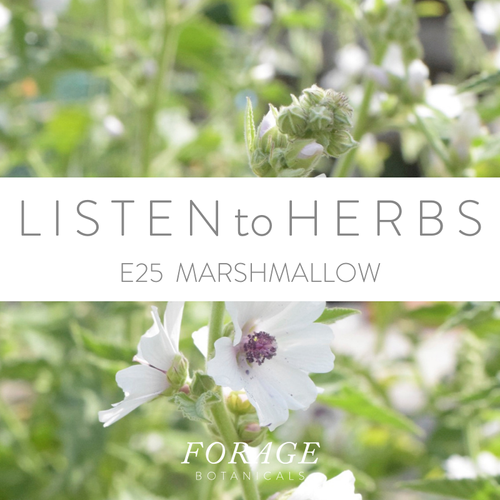by Natasha Richardson
Are Herbs Safe?

When many supporters of herbal medicine think of the safety of herbs it is summarised by a simple thought: they're natural and therefore better for you than man made drugs. But I'm here to tell you why that's wrong and the real reason herbs are so safe.
The safety of herbs goes way beyond just then being natural. There's are thousands and thousands of plants used for medicinal reasons across the world. But that doesn't mean they can't kill you. Before we had modern medicine a lot of what you'd get from a doctor would quite likely kill you; arsenic, Mercury, belladonna and the like. Admittedly many were minerals but a lot were herbs which we hardly use today. Our ancestors simply weren't happy their remedies were working unless they could see you were vomiting, sweating, shitting or passing yourself and even bleeding more than before. This is because of their belief I'm how the excess humours of the body should be dealt with. These days we aren't interested in that sort of treatment.
The line between helpful and harmful was very thin those days. Now we like to take things that will help hut with very little possible harm. There are exceptions though. For instance, cancer chemotherapy can kill you. But so can cancer. So we hedge our bets that one will win over the other. We are willing to take these risks when the risk of the illness is greater. So our relative risk acceptance changes in proportion to the risks that the illness holds.
Generally speaking herbs are used for less serious illnesses than will get you admitted to hospital. Western Herbalists are approached for long term problems that have been unsuccessfully treated by drugs (most of the time). As a result the herbs we use tend to be effective but very low risk. But here are some things to bare in mind…
Contamination
Herbs can contain contaminants from where they were harvested and processed. Seeing a medical herbalist ought to overcome this because we use reputable growers who check their suppliers before selling. Ironically places like super drug don't do this and have had problems with their St John's wort (safeish) capsules in the past for contamination with ragwort (toxic). You can also learn to forage your own plants.
Drug Interactions
Some herbs interact with drugs, such as St John's wort, which effects the cytochrome p450 pathway which has implications for about 50% of drug metabolism. This means that St John's wort can reduce the effectiveness of everyday items such as the contraceptive pill. It's not that St John's wort is dangerous in itself, it just can interact. This is called a herb-drug interaction. Herbalists will go to the trouble of figuring out if the drugs you're on use that pathway and decide if St John's wort is safe. Your doctor probably hasn't the time to do this so will caution against its use altogether.
Side Effects
Then there is the ability for a herb to have side effects. These can range from increasing blood pressure over a long time, skin eruptions (often within the first week), liver toxicity (over a long time), tummy upsets and more. When you see a medical herbalist they group all the potential side effects and herb-drug interactions together under one banner called a contraindication.
See a herbalist
Trained herbalists are aware of these contraindications and know how to research new herb-drug interactions for individual patients too. I have to say though, by and large, most herbs don’t have any contraindications at all. These are the herbs I’ve chosen for our products int he most case. We have one ingredient (Liquorice root) which raises blood pressure in our PMS drops which I’ve added a warning about. I’ve also added warnings for pregnancy and breastfeeding. These warnings are often not added to products sold over the counter in the UK and this is where politics complicates things for herbs.
A lot of the concern about herbal medicine in the western world is the lack or differences in legislation for guaranteeing the quality and safety or the herbal products sold. There are calls for the World Health Organisation to try to govern this globally but with many cultures using herbs from the ground a lot more than we do in the ‘west’ I’m not sure how practical that might be (Chan et.al., 1997). In the mean time, buy your herbs from a qualified herbalist, read the about pages and always enquire with a herbalist if you’re starting a new drug and want to know if the herbs you’re taking are safe to accompany them (and vice versa).
Keeping Perspective by comparing with drugs
This might sound like a scary list of reasons not to use herbs but I wanted to try and put it in perspective by comparing with a couple of drugs we take regularly and think are pretty benign (most of the time). Below is a list of the side effects on the pamphlets for Paracetomol a pain killer and Microgynon a birth control pill. The side effects listed tend to be much more serious than the ones we see in herbal medicine and we have normalised side effects in drugs so much that (most people) we think nothing of it. But because herbs have been historically prejudiced against in favour of drugs, herbal side effects and contraindications are far less welcome (Zhang et.al., 2015). I personally try to work with herbs that have absolutely no contraindications because I like to demonstrate that getting better doesn’t have to involve the risk of getting more sick in a different way, especially when it comes to our products. When it comes to the 1:1 care we offer we diligently check all our herbs to make sure they’re safe for each individual. If you’re interested in speaking to a practitioner for what we have to offer fill out the form on this page, we offer free 20min chats to explore whatever you’re experiencing before going ahead on a treatment plan.
Paracetomol (pain killer) side effects


Microgynon (birth control) side effects



References
Chan, T.Y.K. Monitoring the Safety of Herbal Medicines. Drug-Safety 17, 209–215 (1997). https://doi.org/10.2165/00002018-199717040-00001
Zhang J, Onakpoya IJ, Posadzki P, Eddouks M. The safety of herbal medicine: from prejudice to evidence. Evid Based Complement Alternat Med. 2015;2015:316706. doi:10.1155/2015/316706



